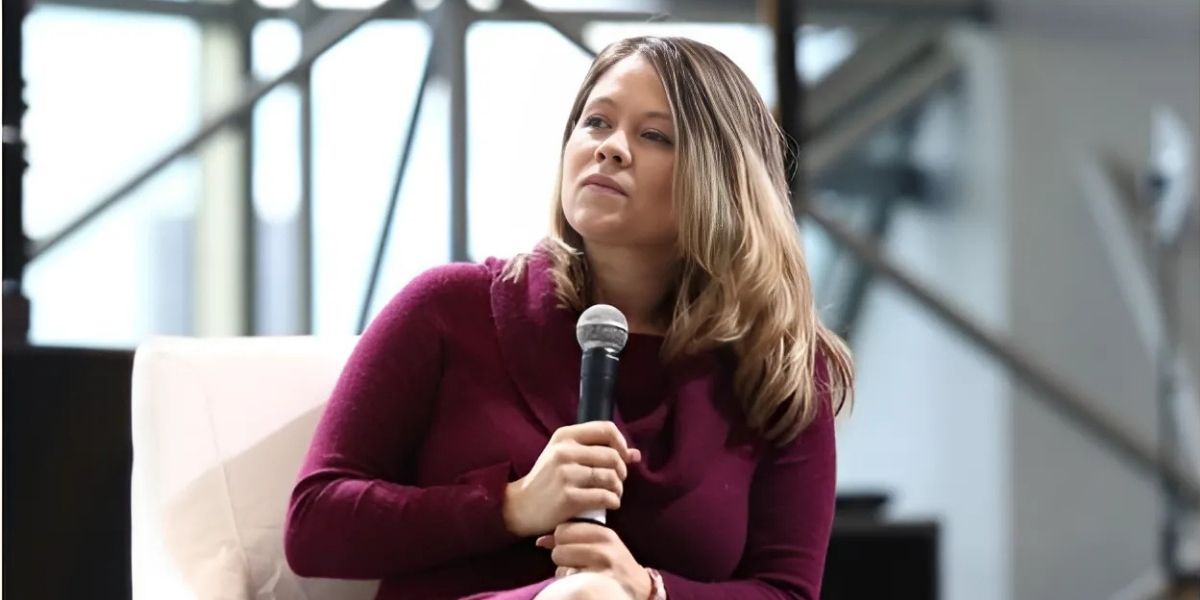Many young aspiring entrepreneurs and professionals today often feel disenfranchised in their careers; not because they lack ambition or skill, but because their work can feel disconnected from their values. They may find themselves on a well-worn path toward stability but often struggle with a nagging sense that they are meant for something more. Lisa Marks-Canty, a multi-entrepreneur and thought leader, has spent decades exploring that very dilemma – for herself and for others.
Lisa’s journey to becoming a thought leader is rooted in her extensive background in business strategy, process improvement, and technology-driven problem-solving. Although her career began in technology, where she was tasked with solving critical problems during the Y2K crisis, her talent for process improvement and strategy execution quickly expanded her role beyond coding.
She started consulting multinational corporations and startups, identifying inefficiencies and designing solutions that have often driven growth and operational success. But as her career evolved, she faced a pivotal realization—many of her achievements were helping businesses maximize profits.
Over time, however, she noticed a common pattern. While her work created efficiencies and increased profits, the impact often benefited primarily the already wealthy. She began asking a fundamental question: What if the same skills used to drive corporate success could also be applied to solving social challenges?
This led her to pivot toward purpose-driven entrepreneurship. In 2003, Lisa felt she had more to contribute to the world outside of her previous professional roles. But she also realized that she had to step out of her comfort zone in order to do so. To this end, she headed to an area of the world where female entrepreneurship was largely non-existent. It was here that she learned her greatest lesson, which helped shape her into a resilient female entrepreneur who could take positive risks, adapt to unknown environments, and relate to people outside her usual social circles. Through these experiences, she developed the skills and courage to start her next project, Eve’s Appetite for a Cure, which focused on cancer research technology.
Additionally, she established other ventures, such as blockchain technology and financial services, all while keeping a social impact in mind. This shift required courage, adaptability, and an intentional strategy—principles that now form the core of her career-alignment framework. Over time, she realized that she could make a bigger impact by guiding others through her own methodology.
Lisa’s methodology outlines 10 key steps, with core principles including courage, clarity, strategy, networking, and sustainability. Her methodology begins with a self-audit, a process influenced by her background in technology and business operations. She urges individuals to take a step back and assess their personal values, strengths, and long-term aspirations. “There’s a structured approach to this,” she explains. “Analyze your skills against your values, understand what truly motivates you, and map out how you can leverage your current position—or transition into a new one—to create meaningful change.”
Lisa encourages aspiring entrepreneurs and professionals to think beyond the traditional career ladder and consider stepping out of their comfort zone. In some cases, it’s about moving horizontally within a company to gain more freedom and alignment with your passions. In others, it’s about starting something completely new. Either way, success often starts with a plan.
Once these individuals have structured their values and skills and developed a step-by-step roadmap for a more fulfilling career, the next step is finding the right people and communities to support the transition. One of the crucial parts of her steps is sustainability. She believes that the potential new career path—or, as an entrepreneur, a business model—should align with their ultimate goal to make a difference in society.
Many struggle with identifying how they want to make a difference. Lisa suggests looking inward first. “The ideal way to understand what kind of social change you want to impact is to reflect on your personal experiences,” she explains. “What challenges have deeply affected you or those around you? Where do you see a gap that your skills could help fill?”
For her, it was a mix of personal and professional experiences—witnessing inefficiencies in healthcare, seeing the struggles of female entrepreneurs in underrepresented communities, and realizing that technology could be used for more than just financial gain.
For others, it might be education, sustainability, mental health, or economic empowerment. The key is to identify a cause that resonates deeply and explore ways to integrate it into your professional life.
But Lisa does not stop there. With her upcoming book on how to develop a personal journey toward entrepreneurship, she hopes to guide readers toward work that not only sustains them financially but also fulfills them personally. She is also expanding her influence through speaking engagements and keynotes, where she shares her framework with professionals eager to break free from uninspired careers. Attendees of her events often leave with a clearer sense of direction, a tangible action plan, and the confidence to take their next steps.
For those who feel trapped in careers that don’t align with their passions, Lisa’s message is simple but powerful: You don’t have to choose between success and purpose. With the right analysis, strategy, and plan, you can potentially have both.
Published by Anne C.
















